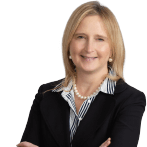Key Points
At least some financial markets and funds businesses are likely precluded from applying for the Paycheck Protection Program (PPP) under the Coronavirus Aid, Relief, and Economic Security Act (CARES Act) as a result of an Interim Final Rule (IFR) published by the US Small Business Administration (SBA) on April 2.1 Impacted businesses include banks, investment companies, passive real estate investment companies and speculative trading firms. This advisory will explore:
- How the SBA carved back the eligibility of certain businesses on the eve of the PPP's start date
- The potential implications of applying if found to be ineligible

As noted in a prior Katten Financial Markets and Funds advisory, the PPP was one of several measures enacted by Congress under the CARES Act to provide small businesses with support to cover payroll and certain other expenses over the next three months due to the economic effects of the COVID-19 pandemic.
Prior to the issuance of the IFR, it was generally believed that the CARES Act expressly provided for new increased eligibility requirements for businesses that were not previously eligible for SBA section 7(a) loans, including financial markets and funds businesses. Limitations on certain industries were already in effect for other SBA section 7(a) loan programs, but the imposition of those limitations on PPP eligibility were not affirmatively picked up in the CARES Act.
On the eve of the first day SBA lenders were to begin accepting PPP applications, the SBA through its IFR, carved back the types of eligible businesses by specifically incorporating an existing SBA regulation and guidance document that lists the types of business that are ineligible from applying for Section 7(a) SBA loans. Specifically, the IFR provides that "Businesses that are not eligible for PPP loans are identified in 13 CFR 120.110 and described further in SBA's Standard Operating Procedure (SOP) 50 10, Subpart B, Chapter 2…."2
Some of the ineligible financial markets and funds businesses listed in the SBA's Standard Operating Procedure 50 10 (SOP) include, without limitation:
- Banks;
- Life insurance companies (but not independent agents);
- Finance companies;
- Investment companies;
- Certain passive businesses owned by developers and landlords, which do not actively use or occupy the assets acquired or improved with the loan proceeds, and/or which are primarily engaged in owning or purchasing real estate and leasing it for any purpose; and
- Speculative businesses that primarily "purchas[e] and hold[ ] an item until the market price increases" or "engag[e] in a risky business for the chance of an unusually large profit."
Since the SOP does not define many of the listed entities and activities, there is some uncertainty regarding whether other types of financial markets businesses are ineligible from applying for the PPP. However, the stakes are high for financial markets businesses that apply and are deemed ineligible under existing SBA regulations and guidance. This is because knowingly submitting a false statement in the PPP application is a criminal offense. The SBA's template PPP loan application includes certifications that the applicant, among other things: (1) "is eligible to receive a loan under the rules in effect at the time this application is submitted that have been issued by the SBA implementing the PPP…;" and (2) is not "knowingly making a false statement to obtain a guaranteed loan from SBA…."3
Katten counsel can work with financial markets and funds clients to assess their potential eligibility and risks if they wish to submit an application to obtain financing under the PPP.
The application form includes a number of other certifications and acknowledgements as well.




